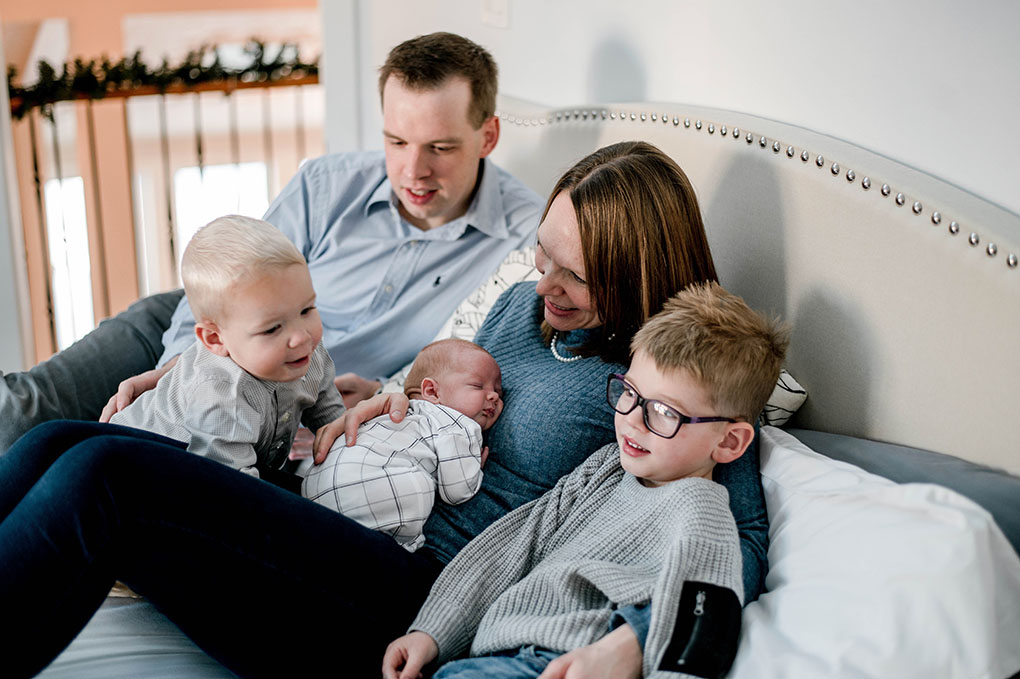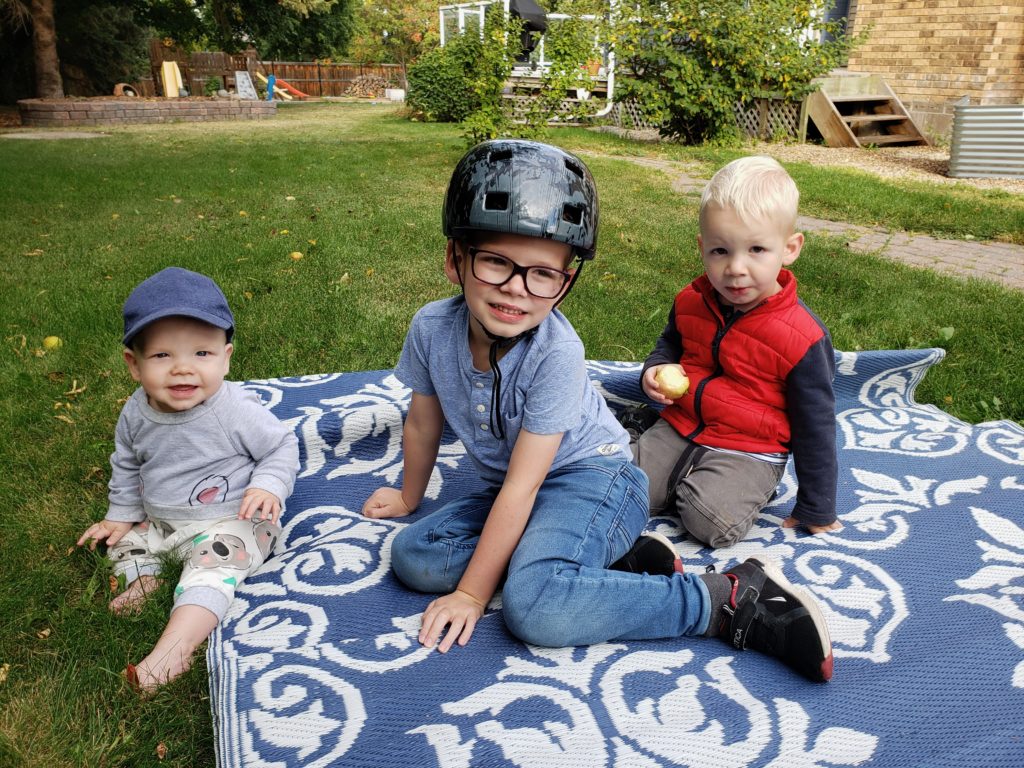As a family physician from Sylvan Lake, Alberta, Amy Cockburn knows the importance of medical accessibility for rural families. But after staying at two Ronald McDonald Houses with her family, she came to understand on a more personal level the role RMHC Alberta plays for all members of the family.
In November 2021, at just 32 weeks pregnant, Amy started hemorrhaging. She and her husband rushed to the hospital in Red Deer, and within 24 hours their son Theodore was born. That night, Amy’s husband stayed at the Ronald McDonald House in Red Deer.
While Theodore appeared healthy and strong at birth, his doctors in the NICU discovered he had a bowel obstruction. With half an hour’s notice, the Cockburn family learned Theodore would be transferred to the Stollery Children’s Hospital. They packed their bags and rushed off to Edmonton.
As the Cockburn family drove into the city, a daunting question entered their minds: “Where are we going to stay?” They decided to contact the Red Deer Ronald McDonald House—where Amy’s husband just spent the night—to see if they could help. To their relief, a room was available for them at the Edmonton Ronald McDonald House.
Theodore thrived during his time in Edmonton, and after one week, the Cockburn family was transferred back to Red Deer. Amy rode with Theodore in the ambulance while her husband packed up their things. When they arrived, a room at the Red Deer House was ready for them.
Theodore spent the next 34 days getting stronger in the NICU. Amy’s husband went home to Sylvan Lake to be with their other two sons, and with the support of the Ronald McDonald House, Amy was able to dedicate that time to caring for herself and Theodore.
I felt like I didn’t have to worry about anything—meals, driving, parking, laundry, or anything. My only job was to just be there and be present for Theodore, and to take care of myself.
“It was November, so it was cold and there was lots of snow, and I didn’t need to worry about driving back and forth and the roads,” Amy recalls. “I didn’t need to worry about getting up early or coming back late. It was just amazing to be able to stay so close. I felt like I didn’t have to worry about anything—meals, driving, parking, laundry, or anything. My only job was to just be there and be present for Theodore, and to take care of myself. I felt like I didn’t have to carry all those extra burdens and that mental load was lifted off my plate. It’s hard enough having a pre-term baby and a baby who’s sick in the hospital, and to just be able to focus on him was so worth it and so important.”
Fortunately, Amy’s husband and sons were able to visit Amy at the Ronald McDonald House on several occasions, and they created beautiful memories together amid a difficult medical journey. “Whenever my kids came to the House, the staff tried to really involve them in something,” Amy says. “It’s still something my boys talk about today—about how they want to go back to the Ronald McDonald House, they want to go play there, because to them it was a magical, amazing place they got to go. It was also a time we could just spend as a family and just play and not really worry about anything else. We had some very great days there together as a family.”
When asked if anything surprised her about her time at RMHC Alberta, Amy mentioned the sense of community she felt with the other families at the Houses. “It didn’t feel like a hotel, it didn’t feel like a hostel. It felt like just a warm, comfortable place to be,” she says. “I always felt like there was this unspoken connection between people there. Everyone’s going through something incredibly difficult and one of the hardest times of their lives, and I felt like we were all just a little bit connected and part of something greater there.”
Amy also underscored the support she felt from staff. “I never felt pressured to talk about my day or what was going on, yet they were always there if I ever felt like I wanted to talk,” she says. “I never felt like I had to justify how I was feeling. To have these people there and this whole community behind you, without asking for it too—they just knew.”
In addition to providing community support, the Ronald McDonald House also gave Amy the gift of time so she could be by Theodore’s side every day in the NICU. “If I wasn’t staying at the Ronald McDonald House, there’s no way I could have pumped and breastfed my little 32-weeker the way I did,” she says. “Because I could be at the hospital all day every day, I was there for skin to skin, and I was there to pump every three hours all day and all night. I took advantage of the Ronald McDonald House pumping rooms, hospital-grade pumps, fridge space, and freezer space. I ended up having an amazing breastfeeding relationship and still do with Theodore, and it’s honestly because I had that time and that space where I could just focus on it. Breastfeeding is so important for premature infants. It makes a huge difference for people just to be closer and to have access to those supplies and equipment.”
Amy’s perspective of the Ronald McDonald House is unique. While she navigated a difficult healthcare journey as a mother and a wife, her medical training also informs her professional outlook of what RMHC means for families. “It’s so important to have parents, siblings, and families near their sick kids—not only for the child in the hospital, but also for the rest of the family,” she says. “For everyone’s mental health and overall well-being, being close and being together—and again, not having to worry about driving, commuting, meals, all of that—I really think it does help everyone’s wellness and hopefully helps them get through whatever challenges or difficulties they’re going through.”
Amy concludes with a reminder that RMHC helps strengthen all members of the family during a child’s medical journey. “The Houses are more than just a place to stay,” Amy says. “They’re a place where you feel comfortable, where you’re taken care of, where there’s always a hot cup of coffee or a warm meal waiting for you. All the supports at the Ronald McDonald House allow you to focus more on your sick kid and just be well as a family. I believe if you have a healthy and well family, you’ll be able to support your children in hospital so much better and come out of it much healthier because of all the extra supports and help along the way.”

